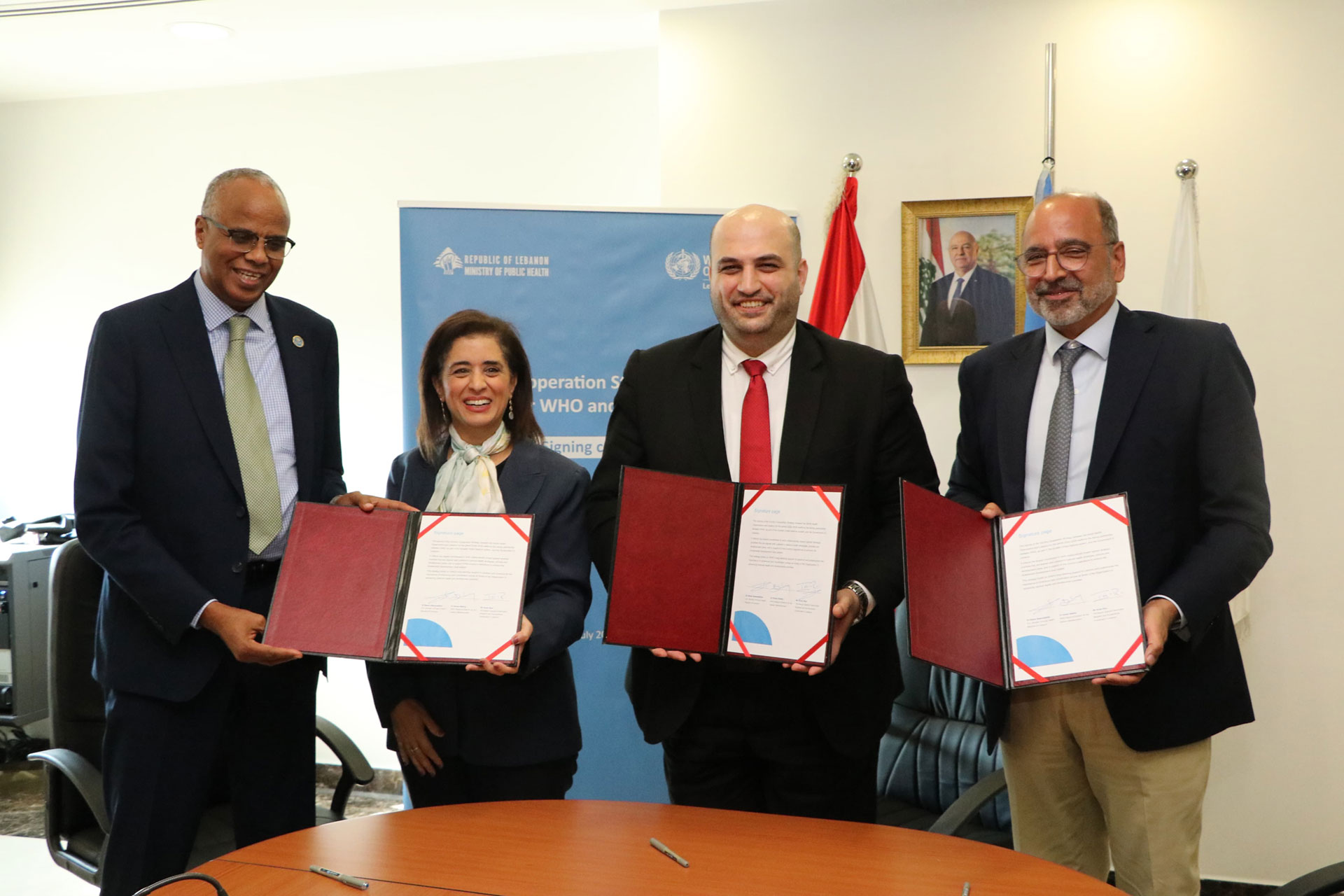
29 July 2025, Beirut, Lebanon – Last week, the Ministry of Public Health and the World Health Organization (WHO) launched the Lebanon Country Cooperation Strategy (CCS) 2026–2029. The 4-year framework aims to guide recovery and advance towards a resilient, inclusive health system.
Developed through an extensive consultation process, the CCS aligns with Lebanon’s National Health Strategy (Vision 2030), WHO’s 14th General Programme of Work and the UN Sustainable Development Cooperation Framework (UNSDCF).
Lebanon’s health system is under enormous pressure. Years of economic collapse and political uncertainty, combined with the latest wave of hostilities, have damaged hospitals and worsened the brain drain.
Public health indicators are declining. Maternal and child mortality and noncommunicable and mental health conditions are increasing.
There are renewed risks of disease outbreaks, particularly cholera. Fragile water, sanitation and immunization systems add to the crisis.
WHO has been a central partner in the response for the past 6 years, supporting national health institutions and emergency preparedness.
Strategic priorities for 2026–2029
CCS 2026–2029 outlines 4 strategic priorities, developed collaboratively by WHO, the Ministry of Public Health and national and international partners. These interconnected areas address immediate humanitarian concerns and long-term development objectives.
- Strengthening health security and emergency risk management, including surveillance, trauma care, emergency preparedness and coordination.
- Reforming the health system and advancing universal health coverage (UHC) by strengthening primary health care and hospital services, digital health, service quality, medicines management and health workforce investment.
- Addressing the determinants of health through climate action, health promotion and risk reduction.
- Enhancing WHO’s presence and leadership by strengthening coordination with partners and mechanisms to ensure results on the ground, and by improving visibility.
These strategic pillars are based on careful analysis of Lebanon’s health needs and align with Lebanon’s Vision 2030, the UNSDCF and the Sustainable Development Goals (SDGs), especially SDG 3: Good Health and Well-being.
Leadership Endorsements
At the launch event, WHO Regional Director for the Eastern Mediterranean Dr Hanan Balkhy praised Lebanon’s resilience: “From the COVID-19 pandemic to the recent escalation of hostilities, Lebanon’s health sector has responded with remarkable resilience and integrity. This new Country Cooperation Strategy reflects our shared commitment to health.”
Dr Balkhy also highlighted how “Lebanon’s health system has weathered immense challenges”.
“Yet what continues to shine through is the resilience of its people – and the dedication of its health workers, who serve communities under extraordinary strain. Let us now turn these priorities into measurable progress – for the health and dignity of every person in Lebanon.”
Minister of Public Health Dr Rakan Nassereldine reaffirmed the government’s commitment to strategic reform. “We believe in setting strategies, not just responding to emergencies. Our goal is to restore public trust and show the world that Lebanon can deliver quality health care for all.”
He underscored the most pressing legislative priorities – activating the Lebanese Drug Authority and passing the long-awaited universal health coverage law, currently under discussion in Parliament.
“We are proud of our partnership with WHO and deeply value its support, from the country office to the regional level. This collaboration is essential to moving from policy to implementation on the ground.”
UN Resident Coordinator in Lebanon Mr Imran Riza described the partnership as visionary. “This shows how institutions can respond to ongoing emergencies while designing a strategic path forward. The CCS exemplifies the humanitarian-development-peace approach in action.”
Looking ahead
CCS 2026–2029 is a major step in the transformation of the health sector, anchored in partnership, trust and a shared commitment to dignity and equity.
As Dr Balkhy noted: “We must urgently prioritize health as a pillar of national recovery and long-term stability. WHO stands ready to support Lebanon’s health system every step of the way.”







